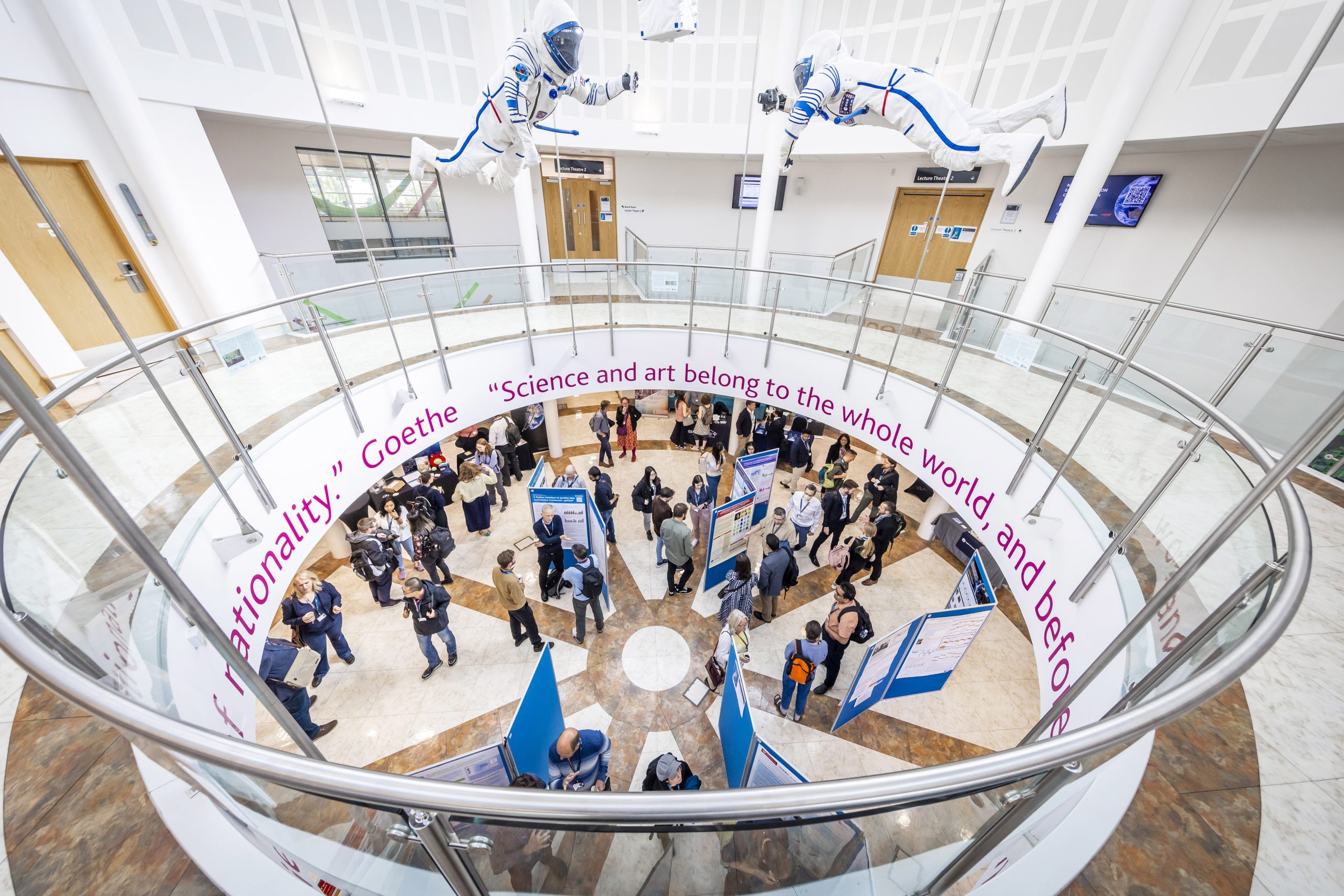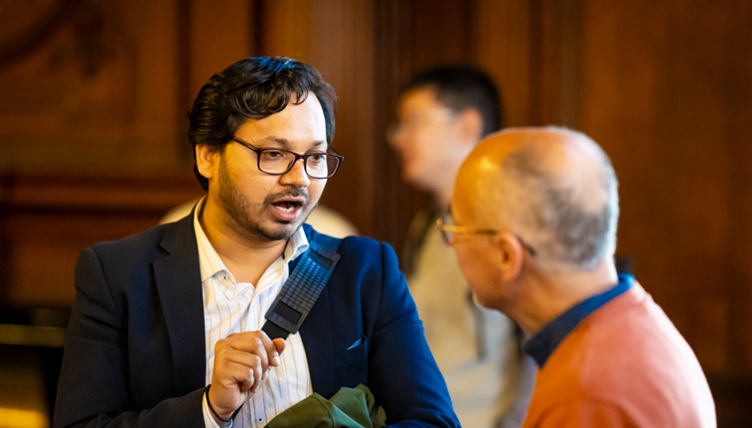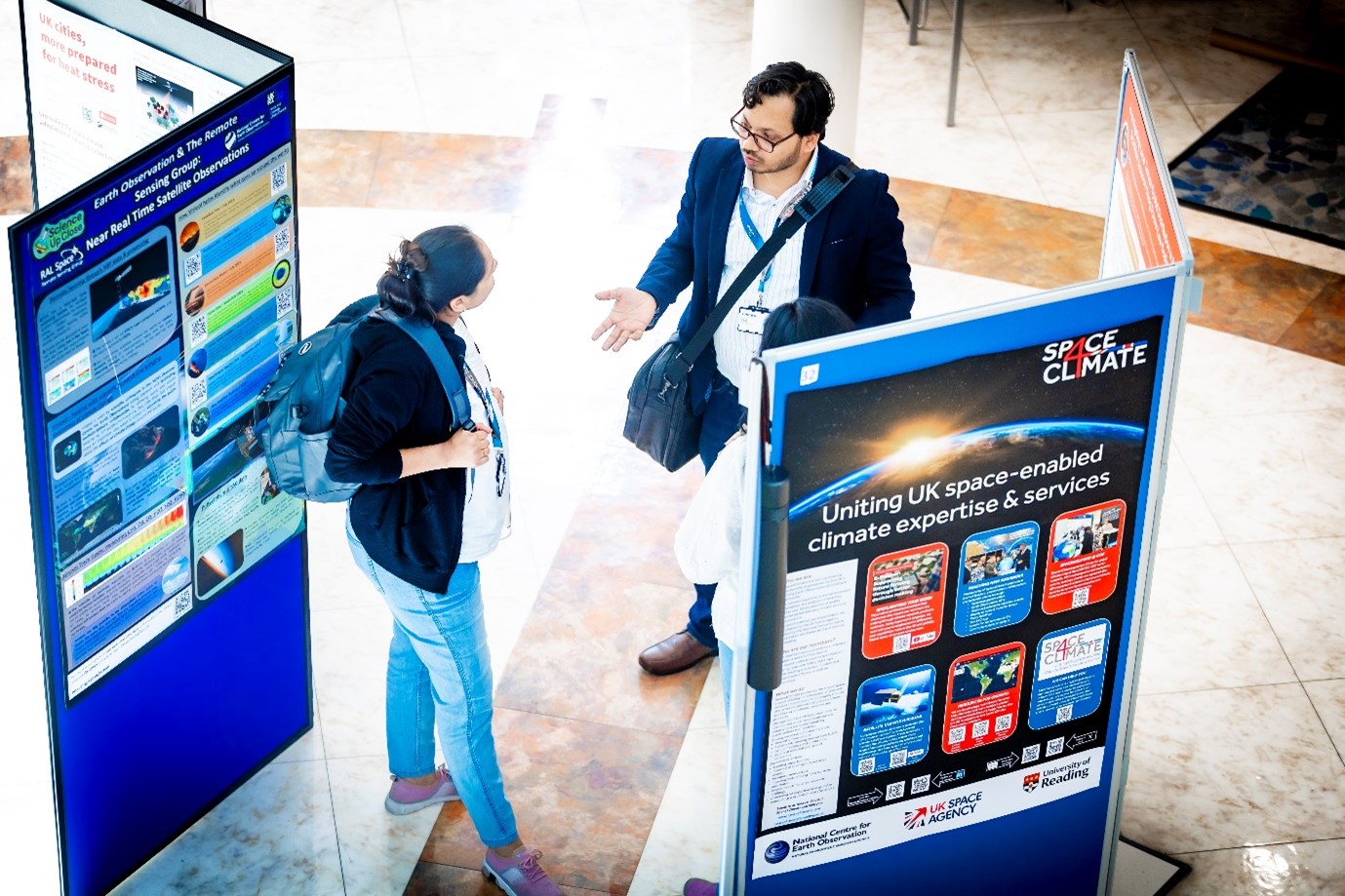
News and Media
Reflecting on the UK National Earth Observation (EO) Conference 2024, York

A blog by Prateek K Dongre

Diving into the UK National Earth Observation Conference was an energising experience, filled with insights, dynamic networking, and cutting-edge EO advancements. I participated in this annual conference with key goals: to network, explore collaborations, learn about the latest developments in Earth Observation (EO), and present the recent technological innovations we’ve made at AAC Clyde Space. The event brought together a vibrant mix of students, researchers, scientists, innovators, and space-tech industry experts from all parts of the world (India, UK, Canada, Brazil, Poland, etc.), all contributing to EO’s dynamic evolution.
Connecting with a diverse range of people during the conference including students, researchers, and experts was truly inspiring and a joy. Observing their curiosity, excitement, enthusiasm, and passion while explaining their scientific research work was both infectious and uplifting. This experience made me realise that people are the greatest earthly resources for scientific knowledge and knowledge exchange (and let’s not forget the importance of books and libraries!).

I had the opportunity to connect with speakers from organisations, such as the UK Space Agency, Space4Climate, the University of Leicester, and more during networking sessions. Their passion for their work was truly inspiring. This further solidified my belief that people are the most valuable resources for knowledge and knowledge exchange, fostering innovation and collaboration.
Reflecting on the conference’s themes, it became clear that climate change remains one of the most pressing challenges of our time. Earth Observation provides critical tools, but the real challenge lies in efficiently utilising the vast amounts of data from the increasing number of satellite launches. The issue of climate change reminds me of a famous quote by actor George Clooney in the Hollywood space movie Gravity: ‘landing is launching’. Similarly, I would argue that ‘a challenge is also an opportunity’, an opportunity to make a meaningful impact.

During the conference, I had the privilege of presenting AAC Clyde Space’s recent EO technology advancements, particularly our ‘Cyclops’ mission. The ‘Cyclops EO constellation’ represents a state-of-the-art, small-satellite-based high-resolution optical data constellation with promising applications in forestry and agriculture. I received excellent positive feedback from the EO community and conference participants, which was encouraging as we aim to explore how AAC Clyde Space’s technology can bring direct benefits to people and the environment.
Climate change, for instance, is not just a challenge but an opportunity for growth, innovation, and meaningful progress. To truly understand the value of our only planet, to move closer to nature, to shift our perspectives from space to Earth, and to be grateful for the planet we live in is something we must all recognise as we work toward sustainable solutions.
Overall, my biggest takeaway from the conference was the realisation of how dynamic and impactful the EO community is. The experience reinforced my enthusiasm for this field, and I would wholeheartedly attend future conferences, aiming to deepen connections and knowledge-sharing further.

Credit and Author Information: This blog is written by Prateek K Dongre (currently Satellite Earth Observation Product Manager at AAC Clyde Space). Author can be contacted via LinkedIn. The author would like to convey sincere thanks to the organisers of the UK EO Conference, Fazila Patel and Tara Thompson (from National Centre for Earth Observation/NCEO), for kindly sending the invitation to write and contribute to this blog.
Latest News and Events





